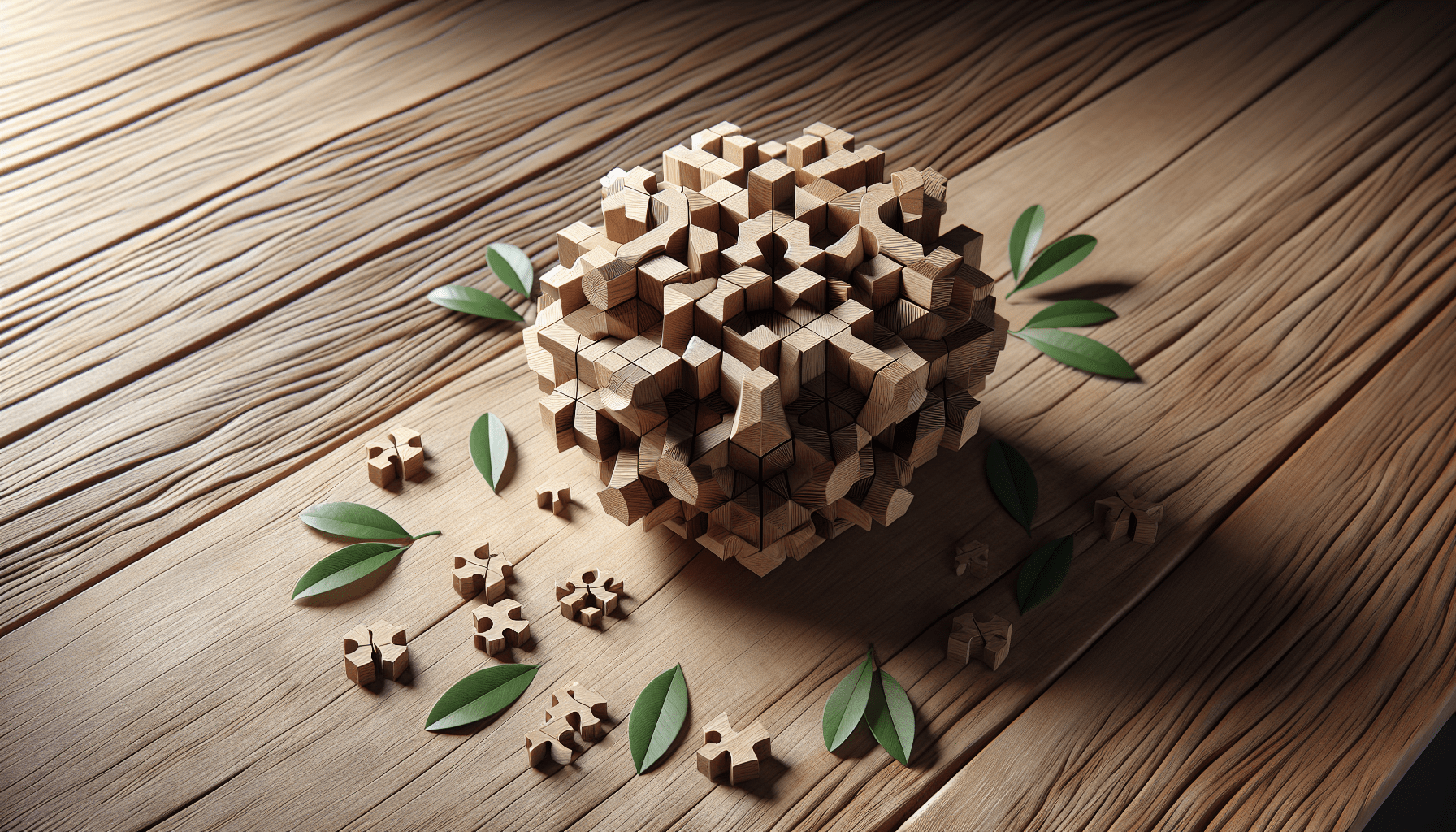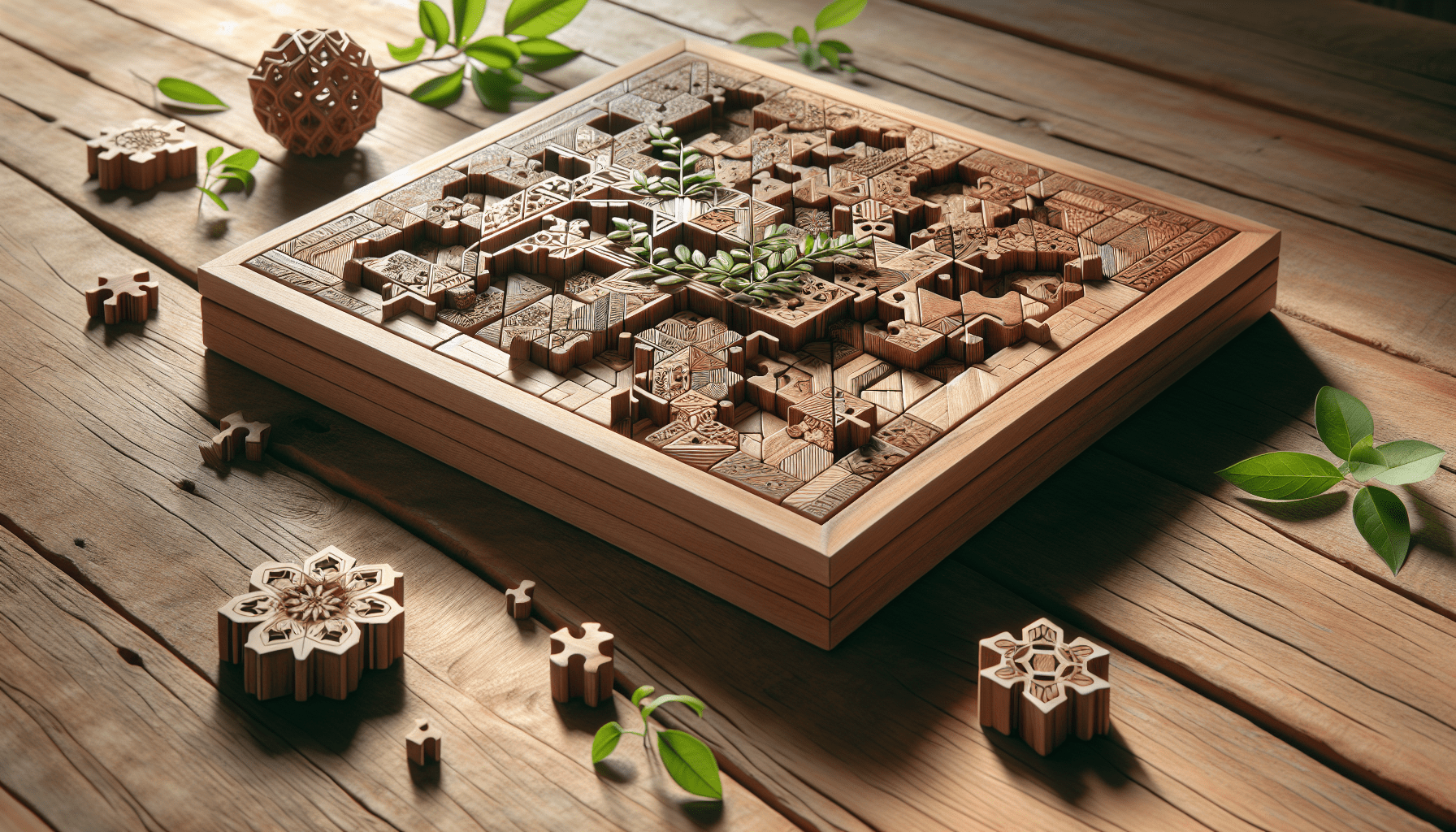Have you ever found yourself pondering the environmental impact of your favorite hobbies? Specifically, have you wondered whether 3D wooden puzzles, such as those by Robotime, Rokr, Ugears, Wood Trick, EWA, Vitascope, Wooden City, and Handmadecity, are environmentally friendly? This is a topic worth exploring as more people look for eco-friendly alternatives in their recreational activities.

Understanding 3D Wooden Puzzles
What Are 3D Wooden Puzzles?
3D wooden puzzles are sophisticated, artistic creations that are not only fun to assemble but also make beautiful displays. Companies like Robotime, Rokr, Ugears, Wood Trick, EWA, Vitascope, Wooden City, and Handmadecity design these intricate puzzles to challenge and entertain. Unlike regular jigsaw puzzles, these puzzles are multi-dimensional and crafted from wood, adding an extra layer of complexity and satisfaction.
The Appeal of 3D Wooden Puzzles
These puzzles offer a unique blend of mental stimulation, artistic enjoyment, and tangible results. They make excellent gifts and serve as engaging hobbies for people of all ages. The tactile experience of working with wood, the sense of accomplishment upon completion, and the aesthetic appeal of the final product are key reasons why they are loved by many.
The Environmental Impact of 3D Wooden Puzzles
Raw Materials Sourcing
You might wonder where the wood for these puzzles comes from. Let’s break it down:
| Company | Material Source | Sustainability Practices |
|---|---|---|
| Robotime | Birch Plywood | FSC-Certified Wood |
| Rokr | Basswood | FSC-Certified Wood |
| Ugears | Plywood | Local Wood, FSC-Certified |
| Wood Trick | Birch Plywood | FSC-Certified Wood |
| EWA | Birch Plywood | FSC-Certified Wood |
| Vitascope | Laminate Plywood | FSC-Certified Wood |
| Wooden City | Baltic Birch Wood | FSC-Certified Wood |
| Handmadecity | Birch Plywood | Uses Recycled Wood |
One of the first things to note is whether the wood used is sourced sustainably. Fortunately, many brands, like Robotime, Rokr, and Ugears, are committed to using wood from Forest Stewardship Council (FSC)-certified sources, which ensures responsible forest management.
Production Process
The production process is another critical aspect. It typically involves cutting, shaping, and finishing the wooden pieces in a manner that minimizes waste. Companies employing advanced, precision-based technologies can reduce material waste and energy consumption. For example, laser cutting technology is commonly used in making these puzzles, which is more efficient compared to traditional methods.
Packaging and Shipping
How these puzzles are packaged and shipped also plays a vital role in their environmental footprint. Eco-conscious brands often use minimal, recyclable packaging materials and implement energy-efficient logistics. Packaging should ideally be made from recyclable or biodegradable materials, ensuring a smaller impact on landfills.
Comparisons with Traditional Puzzles
Wooden vs. Plastic Puzzles
Plastic puzzles are often criticized for their environmental impact due to the use of fossil fuels in production and their non-biodegradable nature. In comparison, wooden puzzles are a far more sustainable option:
| Aspect | Wooden Puzzles | Plastic Puzzles |
|---|---|---|
| Material | Wood (FSC-Certified) | Plastic (Petroleum-based) |
| Biodegradability | Biodegradable | Non-biodegradable |
| Production Emissions | Lower emissions | High emissions |
| End of Life | Recyclable/Compostable | Non-recyclable, landfill waste |
Wooden vs. Cardboard Puzzles
Cardboard puzzles are another common type, and they may seem eco-friendly due to their paper-based material. However, most cardboard puzzles come with a glossy finish, often coated with plastic or other chemicals, which reduces their recyclability. Wooden puzzles score higher in durability and elegance:
| Aspect | Wooden Puzzles | Cardboard Puzzles |
|---|---|---|
| Durability | Long-lasting | Prone to wear and tear |
| Recyclability | High | Limited due to coatings |
| Aesthetics | High | Moderate |
| Replay Value | High | Moderate |
Benefits of 3D Wooden Puzzles
Longevity and Durability
Wooden puzzles are known for their durability and longevity. Unlike cardboard or plastic counterparts, they can last generations if handled with care. This long lifespan means fewer replacements and less waste over time, contributing positively to environmental sustainability.
Educational Value
3D wooden puzzles are not only fun but also educational. They help improve spatial reasoning, problem-solving skills, and fine motor skills. This makes them an excellent tool for educators and parents looking for engaging, educational activities. Let’s not forget the therapeutic benefits; assembling these puzzles can be a relaxing, stress-relieving activity.
Aesthetically Pleasing
Another significant benefit is their aesthetic appeal. These puzzles can serve as beautiful decorative items once completed, adding a touch of elegance to any room. This multifunctional aspect means they seldom end up in the trash, further reducing their environmental footprint.

Challenges Facing 3D Wooden Puzzles
Deforestation Concerns
Despite the benefits, concerns about deforestation can’t be ignored. Even with FSC certification, wood harvesting has an environmental impact. Therefore, it’s paramount that companies source their wood through responsible forestry practices.
Production Emissions
While the production process for wooden puzzles is relatively low in emissions compared to plastic, it’s not entirely impact-free. The energy consumed in cutting and finishing wood can add up. It is crucial for companies to use energy-efficient practices and renewable energy sources where possible.
Cost
3D wooden puzzles can be more expensive than their plastic or cardboard counterparts. This higher cost might deter some consumers, pushing them towards less eco-friendly options. However, considering their durability and multi-functional use, they often provide better value over time.
How to Make a More Environmentally Friendly Choice
Choose Certified Products
Always look for certification labels like FSC. These labels ensure that the wood comes from responsibly managed forests that provide environmental, social, and economic benefits.
Opt for Companies with Sustainable Practices
Support companies that are transparent about their sustainability practices. Many brands now provide information on their environmental policies, from material sourcing to production and packaging.
Consider DIY Options
If you’re crafty, you could try making your own wooden puzzles using reclaimed wood. Not only does this recycle existing materials, but it also adds a personal touch to your creations.
Alternatives to Traditional Wooden Puzzles
Recycled Wooden Puzzles
Some companies now offer puzzles made from recycled wood. These are an excellent option if you’re looking to minimize your environmental impact even further.
Digital Puzzles
While not offering the same tactile experience, digital puzzles are another eco-friendly alternative. They eliminate material waste altogether and can be just as challenging and engaging as physical puzzles.
Bamboo Puzzles
Bamboo is a highly sustainable material due to its fast growth rate and minimal need for pesticides. Puzzles made from bamboo are emerging as a viable, eco-friendly alternative to traditional wood.
The Future of 3D Wooden Puzzles
Technological Advances
With ongoing advancements in technology, the production processes for 3D wooden puzzles are becoming more efficient and less wasteful. Laser cutting and energy-efficient manufacturing methods are making these puzzles even more sustainable.
Increasing Consumer Awareness
As consumer awareness of environmental issues grows, demand for eco-friendly products, including 3D wooden puzzles, is also rising. This shift in consumer behavior is forcing companies to adopt more sustainable practices to remain competitive.
Government Regulations
Stricter environmental regulations are being implemented worldwide, pushing companies to find greener ways of doing business. Compliance with these regulations can lead to more sustainable products.
Conclusion
So, are 3D wooden puzzles environmentally friendly? The answer is generally yes, but with caveats. These puzzles are more sustainable than plastic or coated cardboard puzzles, especially when made from FSC-certified wood and produced using energy-efficient methods. The longevity, aesthetic appeal, and educational value further add to their eco-friendliness. However, challenges like deforestation and production emissions still need to be addressed.
By making informed choices, supporting eco-conscious companies, and considering alternatives, you can enjoy the benefits of 3D wooden puzzles while minimizing their environmental impact. Ultimately, every small step contributes to a greener planet, making your hobby not just enjoyable but also responsible.